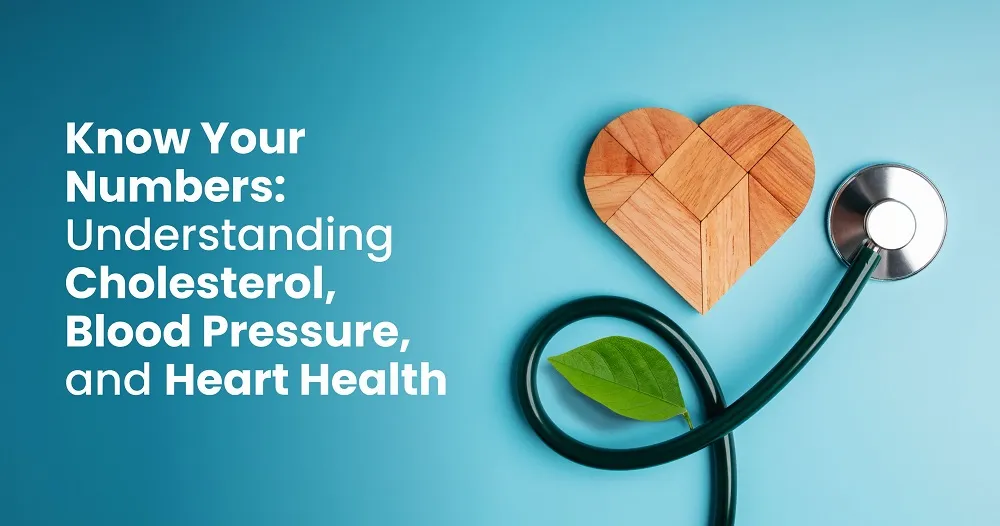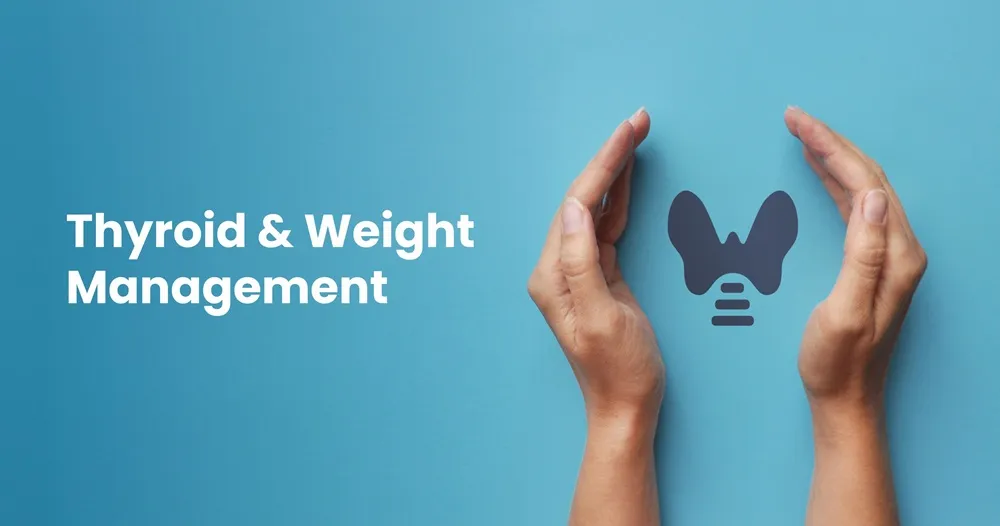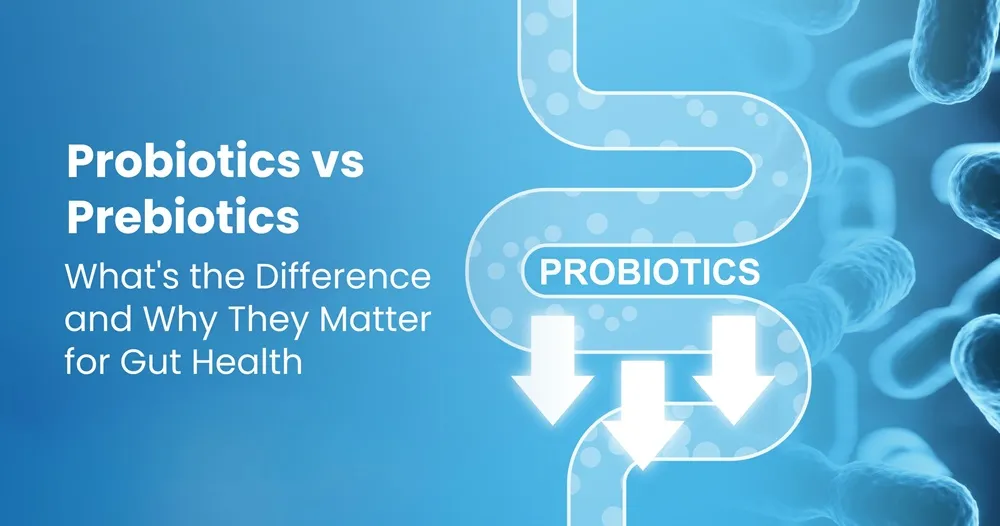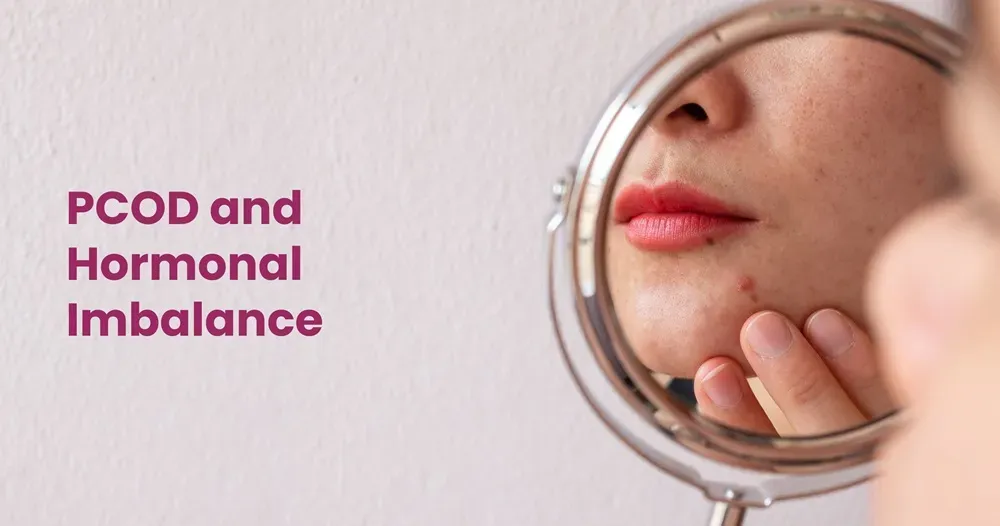Know Your Numbers: Understanding Cholesterol, Blood Pressure, and Heart Health
Oct 03, 2023

We often prioritize work, family, and social commitments over regular health check-ups and preventive measures. Nevertheless, when it comes to heart health, ignorance is not bliss. Understanding your numbers - specifically cholesterol levels and blood pressure – is extremely important in maintaining a healthy heart. Let us delve into the causes, risk factors, and when to see a doctor regarding these vital aspects of cardiovascular well-being.
Cholesterol: The Good and the Bad
Cholesterol plays a crucial role in various bodily functions, including the production of hormones and the formation of cell membranes. There are two main types: low-density lipoprotein (LDL), often known as the bad cholesterol, and high-density lipoprotein (HDL), which is termed as the good cholesterol.
The balance between these two types of cholesterol is crucial for heart health. High levels of HDL cholesterol and low levels of LDL are ideal, as they promote a healthier circulatory system and reduce the risk of heart-related complications.
LDL Cholesterol Levels
Elevated levels of LDL cholesterol are a primary concern. Normally, LDL cholesterol levels are characterized as follows:
|
Category |
LDL Cholesterol Level (milligrams per decilitre (mg/dL) |
|
Optimal |
Less than 100 |
|
Near Optimal/Above Optimal |
100-129 |
|
Borderline High |
130-159 |
|
High |
160-189 |
|
Very High |
190 and above |
LDL Cholesterol Levels
higher levels of LDL cholesterol are considered good for heart health. LDL levels are typically categorized as follows:
Category | LDL Cholesterol Level (mg/dL) |
Low | Less than 40 (for men) or less than 50 (for women) |
higher (Desirable) | 40 and above (for men) or 50 and above (for women) |
Total cholesterol is the sum of LDL and LDL cholesterol levels. It's essential to consider both types of cholesterol together. The recommended total cholesterol levels are typically below 200 mg/dL.
Causes of High Cholesterol
Understanding the origins of high cholesterol levels is pivotal in making informed lifestyle choices and healthcare decisions. Here are the main causes of high cholesterol:
- Diet: a diet rich in saturated and trans fats, commonly found in fried foods, red meat, and full-fat dairy products.
- Lifestyle: Sedentary lifestyles can lead to obesity and cause high cholesterol levels.
- Genetics: High cholesterol sometimes runs in families due to genetic factors known as familial hypercholesterolemia.
Regular cholesterol screening is essential for early detection and management of high cholesterol levels to reduce the risk of heart-related complications.
Risk Factors of Cholesterol
Identifying the key factors that increase your susceptibility to high cholesterol allows you to take proactive measures in safeguarding your cardiovascular health.
- Age: Cholesterol levels have a tendency to rise as we age.
- Gender: before menopause, women typically have lower LDL than men. After menopause, this difference narrows.
- Family history: Your risk is higher if close relatives have high cholesterol or heart disease.
- Smoking: It damages blood vessels, making it easier for cholesterol to accumulate.
- Diabetes: High blood sugar levels can increase LDL cholesterol and decrease LDL cholesterol.
It's crucial to consult a doctor who can evaluate your overall health, assess your risk factors, and determine the appropriate cholesterol targets for your specific situation.
Blood Pressure: The Silent Threat
Blood pressure is measured in millimeters of mercury (mm Hg) and recorded as two numbers - systolic pressure (the top number) and diastolic pressure (the bottom number). An individual should maintain blood pressure around 120/80 mm Hg (systolic number/diastolic number).
High blood pressure, or hypertension, puts excessive strain on the arteries and the heart, making them more prone to damage. Over time, this can result in heart diseases, as the heart has to work harder to pump blood against elevated pressure.
and the heart, making them more prone to damage. Over time, this can result in heart diseases, as the heart has to work harder to pump blood against elevated pressure.
Causes and Risk Factors Related to High Blood Pressure
Exploring the underlying causes and risk factors of hypertension sheds light on the factors contributing to this silent threat to your well-being.
- Lifestyle Factors: A diet high in sodium (salt), saturated fats, and cholesterol can cause high blood pressure. Moreover, minimal physicall activity can contribute to weight gain and increase the risk of hypertension.
- Alcohol Consumption: Excessive consumption of alcohol can raise blood pressure.
- Genetic Predisposition: Hypertension can run in families. You may be at greater risk if your parents or close relatives have high blood pressure.
- Age: Blood pressure tends to rise naturally as you get older. Therefore, the risk of hypertension increases with age.
- Obesity: Being overweight or obese increases the risk of high blood pressure.
- Tobacco Use: Smoking and exposure to second-hand smoke can raise blood pressure.
- Stress: Chronic stress or frequent exposure to stressful situations can cause hypertension.
- Chronic Conditions: Diabetes, kidney disease, and sleep apnea, can raise blood pressure.
- Hormonal Factors: Hormonal imbalances or disorders can cause hypertension.
- Medications and Supplements: Some medications and dietary supplements can lead to elevated blood pressure as a side affect.
In many cases, high blood pressure develops gradually and may not have a single identifiable cause.
High BP and Cholesterol Levels - Unhealthy Combination of Your Heart
High blood pressure and high cholesterol levels are associated with deteriorating heart health. Cholesterol plaque or calcium collected on the walls of the arteries can cause them to narrow, reducing the blood flow. It will cause a strain on your heart to pump the blood much harder, leading to a rise in blood pressure.
Here are some tips to maintain your cholesterol and BP levels to reduce the strain on your heart:
- Say no to fast food as it contains both saturated and trans fat, which is unhealthy for the heart.
- Cut down on the amount of fried and processed food.
- Eat less sodium salt.
- Avoid smoking and using tobacco products.
When to see a doctor?
High cholesterol and high blood pressure frequently show no noticeable symptoms until they have reached an advanced stage or caused complications. But if you notice any of the below-mentioned symptoms, you must consult a doctor immediately:
- Chest pain
- Severe headache (mainly in the back of the head)
- Occasional nosebleeds
- Dizziness or Light-headedness
- Shortness of Breath
- Vision Changes
Summing Up!
Regular health screenings and check-ups are vital for identifying and managing high cholesterol and high blood pressure before they lead to more severe health problems. Prevention is key to a heart-healthy lifestyle. Knowing your numbers - cholesterol and blood pressure - is the first step towards maintaining a healthy heart.
Don’t wait; start prioritizing your heart health today. Get your heart check-up done with Apollo Diagnostics! Your health partner provides all the medical tests at your convenience, with a home collection available! We provide accurate results immediately by following all the safety protocols. Visit our website and book your heart health test today!
FAQs
1: Can I lower my cholesterol and blood pressure through lifestyle changes alone?
Yes, adopting a heart-healthy lifestyle can significantly reduce cholesterol and blood pressure. Focus on a balanced diet low in saturated fats, engage in regular physical activity, maintain? healthy
weight, limit alcohol intake, and manage stress. But in some cases, medical intervention might be necessary.
2: What is a healthy cholesterol and blood pressure target?
For cholesterol, a healthy LDL level is typically below 100 mg/dL, while HDL should be above 40 mg/dL for men and above 50 mg/dL for women. For blood pressure, a target of 120/80 mm Hg is.
considered healthy.
3: Are there any natural remedies to lower cholesterol and blood pressure?
Omega-3 fatty acids supplements and garlic may help lower cholesterol. But it's crucial to consult with a healthcare professional before using supplements, as they can interact with medications and have side effects.
Related Blog Post
- What does Lipid Profile mean?
- Does lowering cholesterol reduce the risk of heart disease and stroke in the elderly?
- Cholesterol Management
- Everything You Need To Know About Cholesterol
- The Connection Between Cholesterol Levels and Heart Health
- Exploring the Relationship Between Cholesterol and Cardiovascular Health
Blog Categories
- Child Health
- Mens Health
- Women's Health
- Mental Health
- Health Myths & Facts
- Fitness
- Nutrition/Recipes
- Remedies
- Weight Management
- Stress Management
- Health Supplements
- Addiction Management
- Disease Management
- Allergy
- Anemia
- Arthritis
- Asthma
- Autoimmune Diseases
- Blood Pressure
- Cancer
- Deficiencies
- Dengue/Malaria/Chikungunya
- Diabetes
- Eye Problems
- Heart Diseases
- Hepatitis
- HIV/AIDS/STD
- Hormonal Imbalance
- Infection/Flu/Viral
- Kidney
- Liver
- Menstrual Problems
- Pregnancy
- Skin & Hair Problems
- Stomach Ailments
- Thyroid
- Others
- Health Checkups
- Diagnostics/Pathology
- Lifestyle & Wellness
- Covid
- Medical Tests
- Cholesterol
- Health Tips
- Parent Care/Old Age
- Lungs
- Food Intolerance








